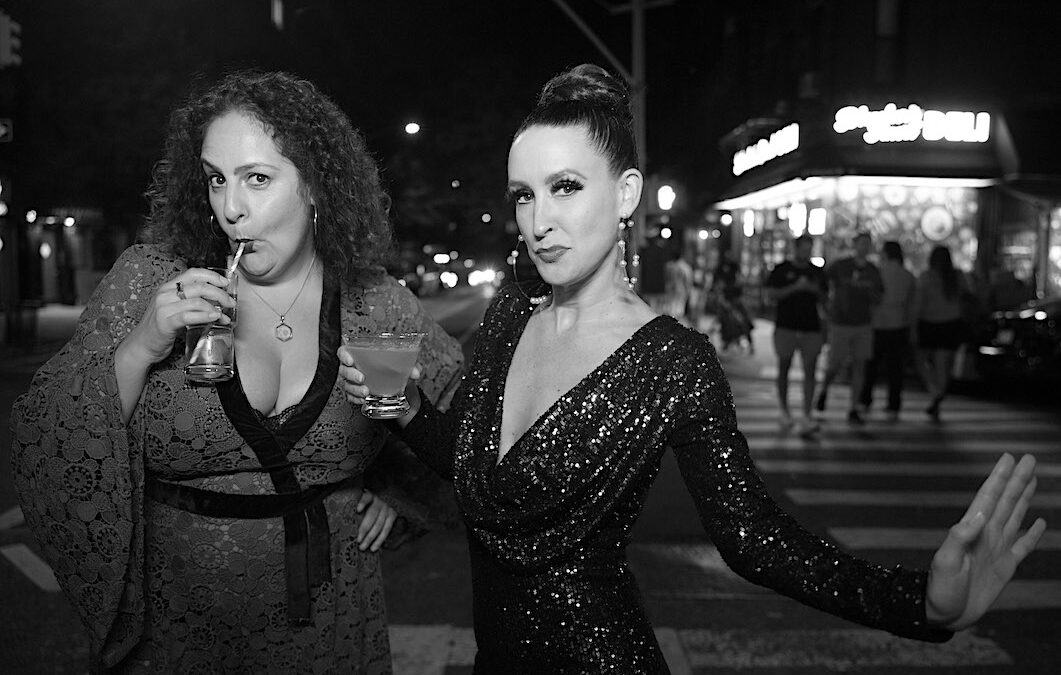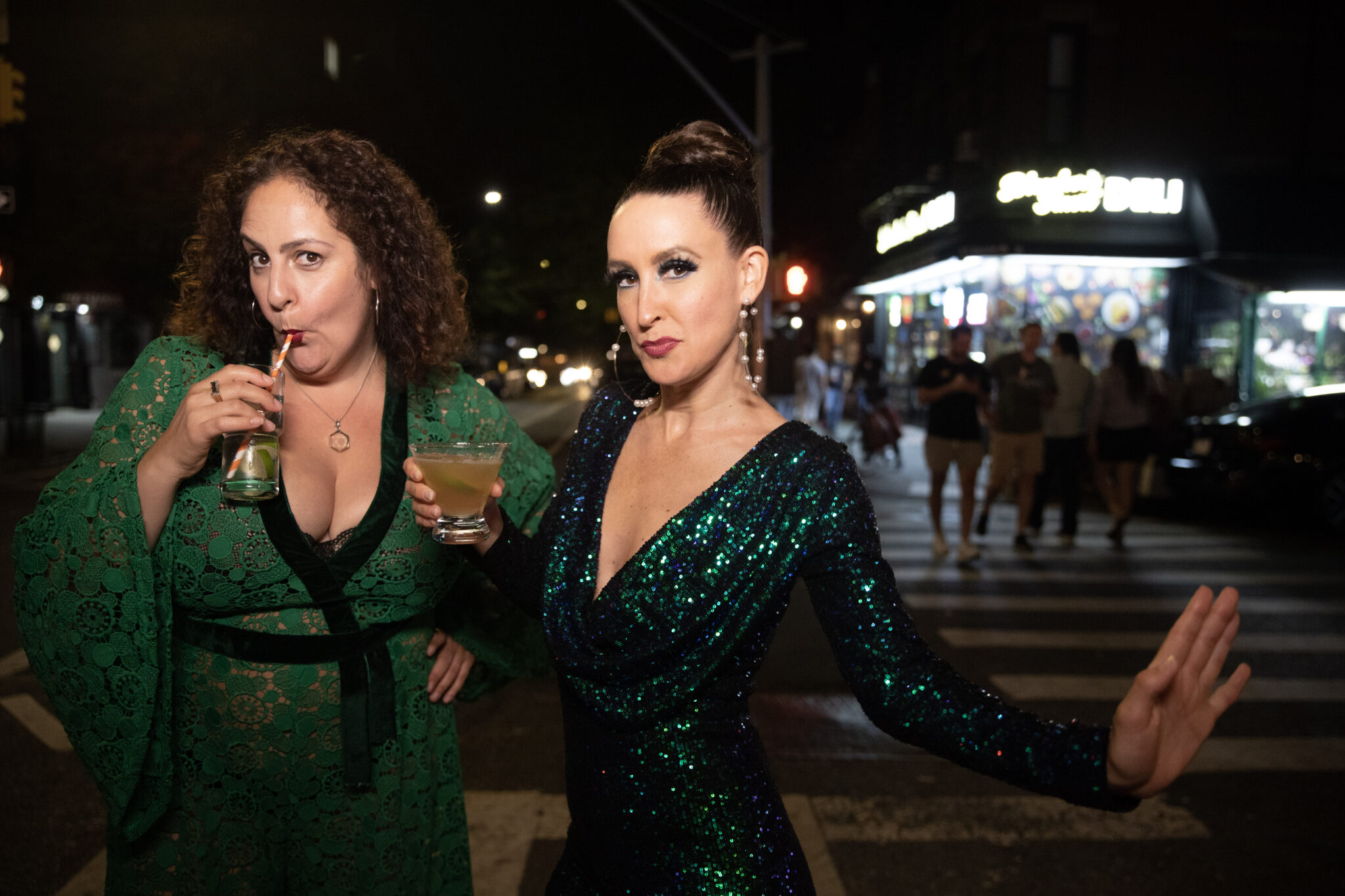White Cis-Het Men Don’t Need Our Help


Contributed story by Rachel Green and Kirsten O’Brien
“White Cis-Het Men Don’t Need Our Help” Female Producers Create Shows to Spotlight Under-represented Comedians While Clubs Continue to Book All-Male Lineups in 2022
Rachel Green and Kirsten O’Brien teamed up mid-pandemic to pave their own path in a male-dominated, often hostile industry for female comics. Their show, featuring femme, LGBTQIA+ and BIPOC comics became a safe space for comics and audiences alike, to enjoy themselves without the “bro-show” environment that often “punches down.”
You can check them out on August 11, 8pm at The Comedy Shop and on August 18 at 8pm at Laugh Boston.
The two met in 2019 at a show O’Brien produced in the tiny attic space above the main stage of The PIT’s now-defunct 24th St location. Performing on one evening’s lineup, Green told a joke about queefing, and O’Brien’s set warned of the adhesive properties of vaginal fluids. It was love at first laugh. The two became fast friends and started meeting up and writing together. They soon realized they were having very similar experiences in the comedy world.
Large clubs throughout the city were still somehow presenting all-male lineups, many of which were all white men, and often all straight. Rachel often experienced being the only woman on the lineup, sometimes having hosts bring her to the stage with cringe-worthy statements like “this next comic is a woman.” Meanwhile, audience members would approach her after shows saying, “wow, you’re really funny! Why weren’t there more women on the lineup?” Kirsten faced similar situations, finding that her material would do extremely well in the downtown clubs, but in the midtown clubs, her mere presence and femme-centered jokes were jarring on a majority male lineup. “Male comic friends would attempt to enter the discussion, saying things like ‘I don’t know any women’ or ‘I don’t know any black female comics!’ To which I would ask, ‘have you looked?!’,” said Green.
Then March 2020 happened. Comedians resorted to zoom shows, shows in public parks, or on rooftops, trying to keep the joy of comedy alive as safely as possible. It was guerilla-style standup, and for once, comedy became more about doing it for the passion than the competition. However, a year later when clubs started to reopen, they seemed to go right back to their status-quo white-washed male lineups. And the few women that were being booked seemed to have to assimilate to the environment by telling “bro” jokes and wearing the hooded sweatshirt and dirty jeans male comic uniform.
How could this still be happening? Well rather than stay disheartened, Kirsten and Rachel decided to do something about it and take ownership of their part in the community. They teamed up to produce The Boss Bitch Show, a sex-positive standup show, centered on booking lineups of mostly femme-identifying, LGBTQIA+ and BIPOC comics (and sure, an occasional cis, straight white dude they might like). The result was a highly successful monthly (and often sold out) show with a faithful following, located at The Comedy Shop in NYC’s West Village.
“Audience members often come up to us after the show thanking us and saying things like ‘Wow, I actually enjoyed every single comic on the show’ or, ‘I not only laughed, I learned a lot,’” says Green. “Or, ‘thank you for sharing about that thing that I’m afraid to talk about – I feel seen.’”
“We recently had an all female lineup for our show, and it was probably one of the strongest shows we’ve ever had,” says O’Brien. “The audience was on fire, and we were sold out. I mean, at the end of the day, I wish I could show these other clubs that it’s simply good for business! Which further begs the question, why aren’t more women, POC, and queer comics getting booked?” Comics are also appreciative, sharing with Grenn and O’Brien that they are finally able to do all of their queer material for instance, or that they are so excited to have an audience that really “got them”. As O’Brien puts it, “Comedy is sort of a microcosm of the whole. You see it everywhere, like in politics… Cis-het white men representing a population that is far more intersectional. Comedy needs shows that represent and reflect their audience. NYC standup audiences are multicultural and intelligent. We wanted our lineups to be able to connect with that audience and showcase voices in standup that need to take up more space than they currently do.”
Unfortunately, the issue extends beyond NYC and across the country to Los Angeles for instance, as noted in a recent article in LA Magazine where comic Valeri Tosi outed her home club for not having any women on their weekend lineups. At a glance, a recent survey of six well known comedy venues in Manhattan during primetime Saturday night shows unsurprisingly that one club had no women listed on the 8pm and 10pm lineups. Most had one woman on the lineup, with the remainder of the comics consisting of straight white men. Some had a touch of diversity with one male comic of color. Some clubs even had two women on the show, making for a whopping one third of the lineup.
While things may be progressing towards more diversity in lineups, shows are still sadly dominated by mostly white male comedians. The change is slow and clubs think their work is done, checking the diversity box with one woman, one person of color or one LGBTQIA+ person on a lineup, and tokenism isn’t meaningful change. Thankfully in the meantime, shows like Glo Butler’s Glo In The City: A POC Queer Comedy Show, Caitlin Reese’s Daddy: A Queer Comedy Show, Bobby Hankinson’s Kweendom or The Boss Bitch Show are leading the way. Because, as Green stated plainly, “white cis-het men don’t need our help.”
